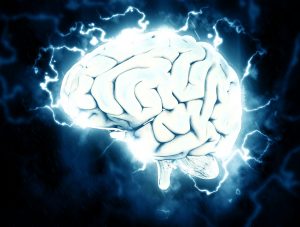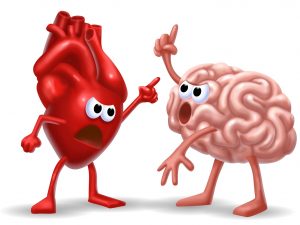 Traffic, rude neighbors or co-workers, and financial stress are some the of common things in life that can cause stress. In turn, this stress can give you a headache. Besides literally being a pain, chronic headaches can reduce quality of life and lead to other health issues over time. In honor of June, which is Headache Awareness Month, let’s learn more about headaches and how you can manage them naturally.
Traffic, rude neighbors or co-workers, and financial stress are some the of common things in life that can cause stress. In turn, this stress can give you a headache. Besides literally being a pain, chronic headaches can reduce quality of life and lead to other health issues over time. In honor of June, which is Headache Awareness Month, let’s learn more about headaches and how you can manage them naturally.
All about headaches
When it comes to headaches, not all of them are created equal. This is because some can be worse than others, they can affect different sides of the head, and some last longer than others. The two major types of headaches are tension headaches and migraines.
First of all, the most common type of headache is the tension headache. Tension headaches may stem from mental stress, or tension, as well as too little sleep, too much alcohol, or a mental health condition like anxiety or depression. And according to experts, tension headaches usually occur as a result of tight muscles in the shoulder, neck, scalp, and jaw.
The second major type of headache is the migraine. And unlike tension headaches, migraines involve a whole different level of pain. This is because migraines cause more than just a head ache. In fact, other symptoms of a migraine can include:
- moderate to severe throbbing often on one side of the head
- sensitivity to light and sound
- nausea
- vision changes such as flashing lights or temporary loss of vision
Headache management
Typical treatment of a headache may involve an over the counter pain reliever. However, if you deal with headaches often, you may want to find more natural ways to deal with your condition to avoid taking so much medicine. Some natural ways of dealing with headaches include:
Acupuncture: This age-old technique of inserting thin needles in certain areas of the skin has been shown to help reduce headaches if the active points are targeted. Therefore, it’s important to ensure that you visit an acupuncturist who has experience and training in treating headaches to ensure you receive the most effective treatment.
Massage: Through manipulation of soft tissues of the body, research shows that massage can help relieve tension-type headaches.
Spinal manipulation: Healthcare providers like chiropractors can provide spinal manipulation treatment. This type of treatment involves applying a controlled force to a joint in the spine. By doing this, research shows that this type of treatment may help reduce the pain and intensity of migraine headaches. However, it’s important to note that such manipulation may cause side effects. Such side effects may include temporary headaches, tiredness, or discomfort in the area that was worked on. Therefore, be sure to talk with your doctor before opting for this headache treatment.
Breathing exercises: Although there have been limited studies done, one study does show that breathing exercises, such as those involved with yoga, can help lessen headache intensity and frequency. Therefore, it may do your body and mind good to add yoga to your weekly routine. Other breathing-related exercises that may help include meditation, relaxation breathing, or tai chi.
Losing weight or diet changes: Experts suggest that you can manage headaches by losing weight or taking a magnesium supplement daily. Also, adding magnesium-rich foods to your diet could help with headache treatment. Such foods include spinach, quinoa, nuts like almonds, cashews, and peanuts, as well as black beans, avocado, and tofu, to name a few.
Certain dietary supplements: According to the American Academy of Neurology and the American Headache Society, the supplement butterbur is effective in reducing the severity and frequency of migraine attacks. It’s important to note though that the effects of long-term use of this supplement are not known. Also, it’s thought that extended use could harm the liver. Therefore, be sure to have other options in your headache treatment routine and ask your doctor before starting this supplement.
Instead of this supplement then, it may be worth it to try a more natural and safe supplement such as Migravent by Vita Sciences. Migravent contains natural ingredients like specialized PA free butterbur, CoQ10, magnesium, and riboflavin for advanced neurological support. PA free butterbur means that you receive the migraine health benefits of butterbur without the pyrrolizidine alkaloids (PAs) that are unhealthy for your liver.
Take home message
Headaches can literally be a pain in the neck. Therefore, it’s always good to have an array of remedies up your sleeve. This way you can deal with them effectively when you need to. For ways you can help support research on headache treatment as well as for resources and events to advocate for those who suffer from such health issues, be sure to visit the American Headache Society website today.
-written by Staci Gulbin, MS, MEd, RD
References:
American Headache Society (accessed June 4, 2019) “How to Participate in Migraine and Headache Awareness Month.”
Goldman, R. (last updated July 26, 2017) “Ten foods high in magnesium.” Medical News Today.
National Center for Complementary and Integrative Health (last modified May 16, 2019) “Headaches: In Depth.”
 When most people start an exercise program, they may be trying to do one of a few things. Most people move more to lose weight, some exercise to gain muscle, and some just want to tone up. However, the benefit from exercise that most may not think of is improved mood. A recent study shows that moving more each day may have prevent depressive symptoms. Not to mention, that research also shows that preventing or improving such symptoms can help improve health outcomes in those with diabetes.
When most people start an exercise program, they may be trying to do one of a few things. Most people move more to lose weight, some exercise to gain muscle, and some just want to tone up. However, the benefit from exercise that most may not think of is improved mood. A recent study shows that moving more each day may have prevent depressive symptoms. Not to mention, that research also shows that preventing or improving such symptoms can help improve health outcomes in those with diabetes.
 If you have ever had a migraine headache, you know the pain is so intense that a trip to the hospital may be in store. In this case, the ER staff may use an opioid pain medicine as a first resort. However, a recent study has shown that this commonly used drug, also known for its addictive qualities, may not be the best choice for migraine relief.
If you have ever had a migraine headache, you know the pain is so intense that a trip to the hospital may be in store. In this case, the ER staff may use an opioid pain medicine as a first resort. However, a recent study has shown that this commonly used drug, also known for its addictive qualities, may not be the best choice for migraine relief.